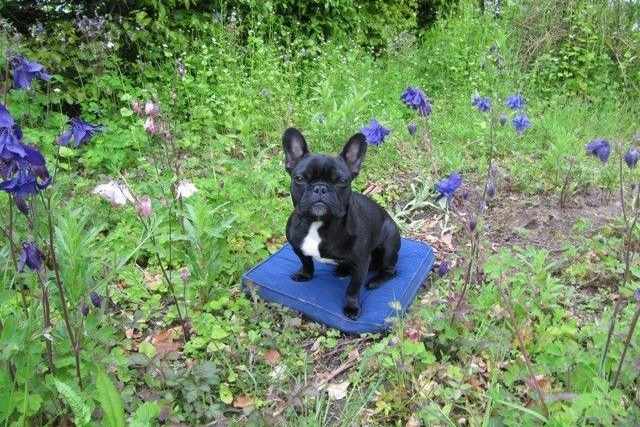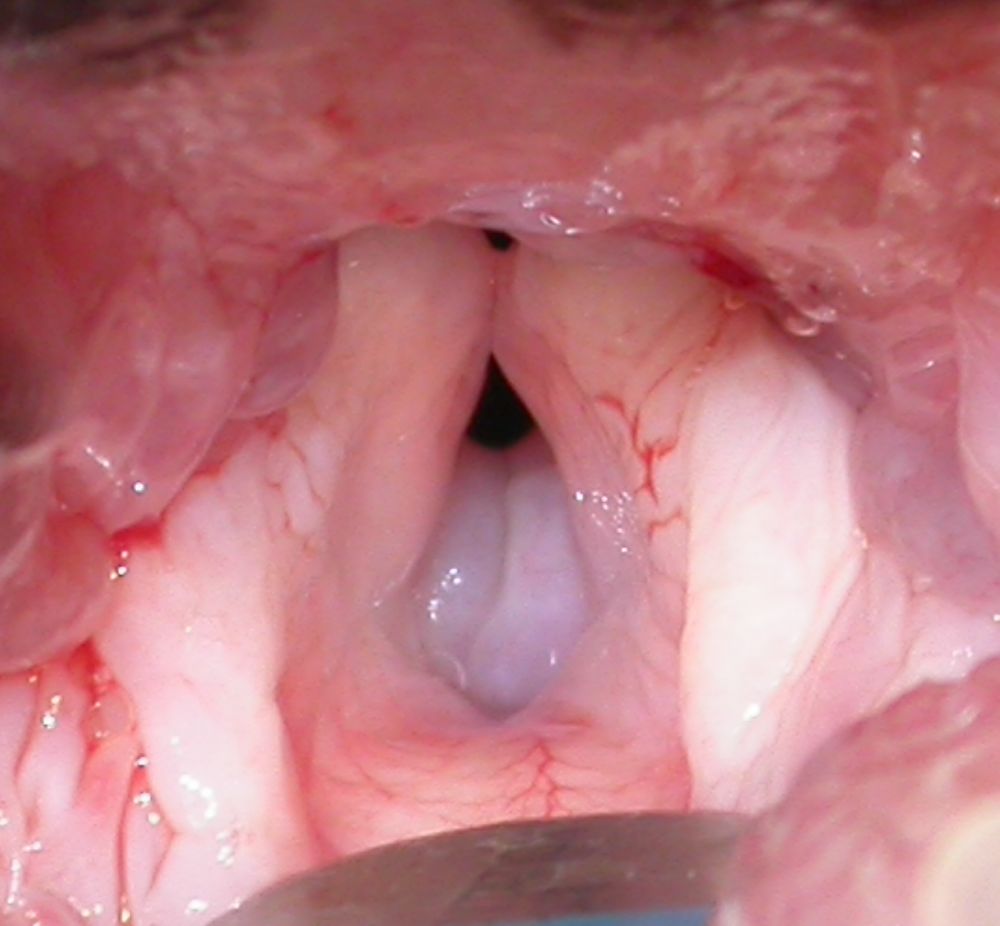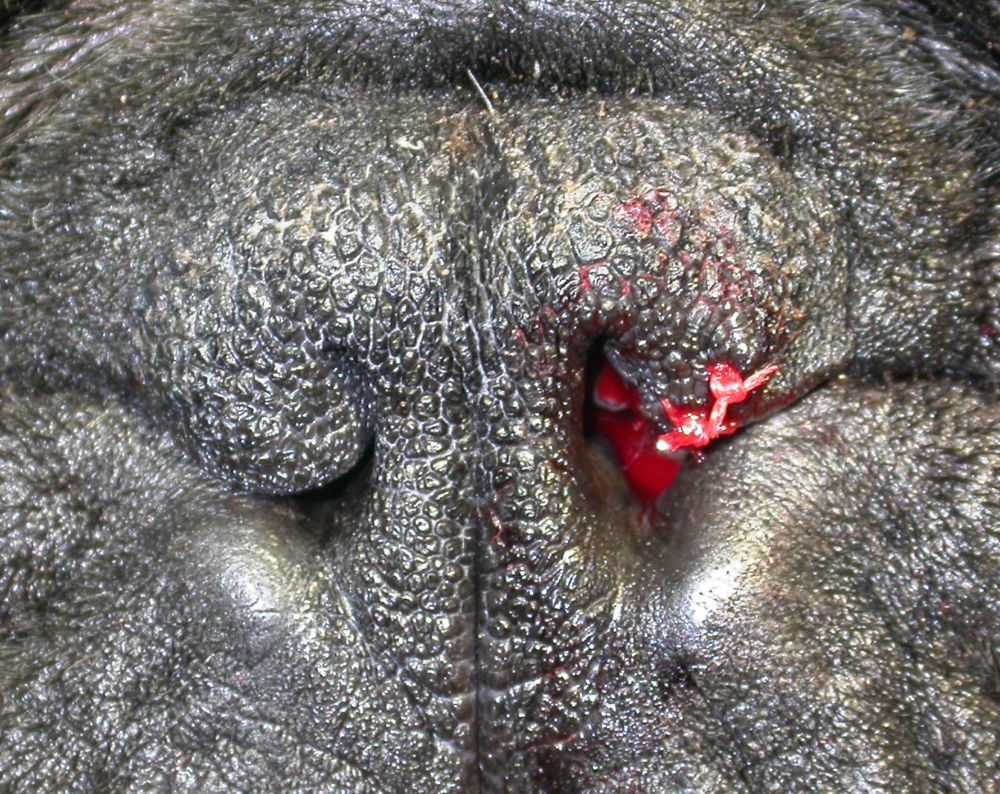New RVC study reveals 2075 percent rise in surgeries for French Bulldogs
New research from the Royal Veterinary College (RVC) has revealed a 2075% increase in soft-tissue surgical referrals over the past 10 years for French Bulldogs at the RVC’s Queen Mother Hospital for Animals (QMHA ) in London. The study, which is the largest of its kind, also found that there had been an 800% increase in surgeries to manage breathing problems related to extreme body shapes in flat-faced dog breeds, with French Bulldogs identified as the breed most commonly requiring this surgery.

Over recent decades, the UK public has fallen in love with the extreme looks of certain types of dogs such as those with very flat faces, bulging eyes and deep skin folds. However, these looks that seem so cute to humans also cause huge suffering for many of these dogs.
Against this backdrop of shifting dog breed popularity, this new study sought to explore the impact on canine health care by assessing changing patterns in referral surgery in dogs and cats at the QMHA, Europe’s largest veterinary referral hospital. As well as the direct animal welfare information from the study, the results could also inform on future planning, investment, and workforce training in veterinary services to better meet these new emerging clinical needs.
The research, led by Dr Alex Currie during his time at the RVC, analysed theatre log data of soft tissue surgeries performed on different breeds of cats and dogs in 2008 and 2018 at the QMHA. While healthcare administration (HCA) data has long been used in human medicine to support evidence-based decision-making, resource allocation, and future service planning, this study represents one of the first applications of data for these purposes in a veterinary setting. .
The study recorded a huge rise in soft tissue surgical procedures from 659 in 2008 to 1,001 in 2018 that has largely been driven by the increased requirement of these specialist RVC surgeons to offer care for flat-faced dogs. Flat-faced dogs describe those types of dogs that are deliberately designed and bred not to have a natural long nose. Sadly, these dogs lose much of the natural function of a long nose to ensure easy breathing, enable sleep and to cool the dog, and therefore many flat-faced dogs suffer severe breathing problems. Procedures specifically to manage brachycephalic obstructive airway syndrome (BOAS), the serious breathing condition affecting flat-faced breeds, rose considerably from 16 surgeries in 2008 to 131 in 2018, representing an increase of 813%.

The findings reveal how growing public preference for abnormally flat faces in dogs is driving a canine welfare crisis in the UK, with veterinary teams treating increased numbers of animals for conditions caused by extreme body shapes that do not exist in nature. Although traits like short muzzles and skin folds are often seen as cute or fashionable, they come with severe lifelong health issues that frequently require complex and costly specialist surgery. As a result, many owners face unanticipated emotional and financial strain, underscoring serious ethical concerns about the continued breeding of dogs with extreme conformations.
Other key findings included:
- Almost half (45%) of all BOAS surgeries performed in 2018 were on French Bulldogs.
- The median age of the referred French Bulldogs in 2018 was just 26 months, suggesting a strong demand for young dogs and a shorter lifespan linked to chronic health issues.
- Domestic short hair cats were the most frequently presenting breed in both 2008 and 2018.
- Among cats, the Ragdoll showed the greatest change in referrals, increasing from one case in 2008 to eight in 2018.
- In cats, the subcutaneous ureteral bypass was the most common operation in 2018, with 27 performed, compared to zero in 2008.
The study’s findings demonstrate how pet ownership trends in popular breeds are driving shifts in the types of expertise, facilities and equipment required in veterinary hospitals. Building on the example of this study, future analysis of healthcare administration data from referral centres can help anticipate need, improve planning and ensure the right skills and resources are in place, all to support better outcomes for patients.
Dr Alex Currie, former intern at the Royal Veterinary College and lead author of the study, said:

” These findings demonstrate the welfare cost associated with flat-faced dogs, in addition to the financial and emotional toll on owners of managing the health needs of such breeds.”
Prof Dan O’Neill, Professor of Companion Animal Epidemiology at the Royal Veterinary College and co-author of the study, added:
“These findings show the huge cost that dogs are paying for our human desire to own dogs that no longer look like natural dogs. It is time for humanity to put the welfare needs of the dog ahead of our whims to own extreme and non-natural shaped animals, and to return to seeing the natural canine body shape as a thing of beauty.”
Professor Dan Brockman, Professor of Small Animal Surgery at the RVC and co-author added:
“This study was initiated to objectively examine how the role of the soft tissue surgeon in a referral environment has evolved over time. However, it is impossible to ignore the dominant, stark and devastating finding that human “preference” is creating a welfare catastrophe before our eyes and “on our watch”. I concur entirely with Professor O’Neill, it is time for this to stop.”
Notes to Editors
Reference
Currie A.J., O’Neill D.G. & Brockman, D. (2025). ‘Lessons from changing soft tissue surgical referral trends for cats and dogs in a UK veterinary university teaching hospital between 2008 and 2018’ Companion Animal Health and Genetics https://doi.org/10.1186/s40575-025-00147-w.
For media enquiries, please contact:
- rvc@plmr.co.uk
- Press Line: 0800 368 9520
About the RVC
- The Royal Veterinary College (RVC) is the UK's largest and longest established independent veterinary school and is a Member Institution of the University of London.
- It is one of the few veterinary schools in the world that hold accreditations from the RCVS in the UK (with associated recognition from the AVBC for Australasia, the VCI for Ireland and the SAVC for South Africa), the EAEVE in the EU, and AVMA in the USA and Canada.
- The RVC is ranked as the top veterinary school in the world in the QS World University Rankings by subject, 2025.
- The RVC offers undergraduate and postgraduate programmes in veterinary medicine, veterinary nursing and biological sciences.
- The RVC is a research-led institution, with 88% of its research rated as internationally excellent or world class in the Research Excellence Framework 2021.
- The RVC provides animal owners and the veterinary profession with access to expert veterinary care and advice through its teaching hospitals and first opinion practices in London and Hertfordshire.
